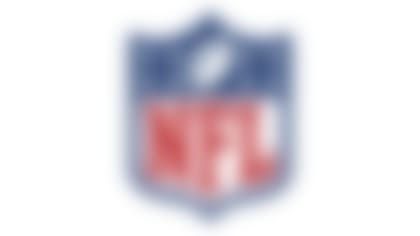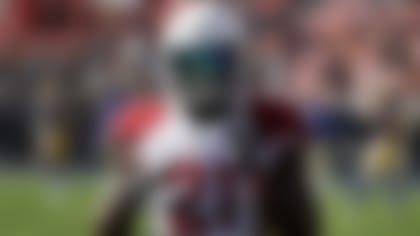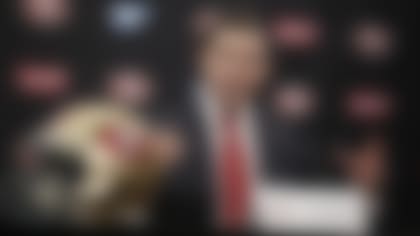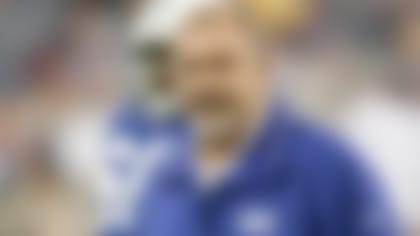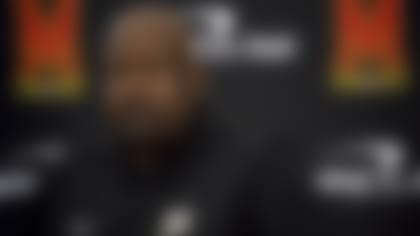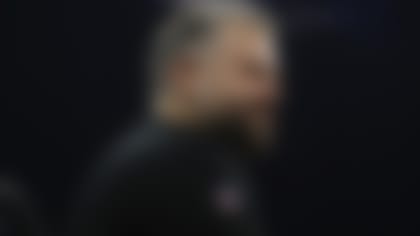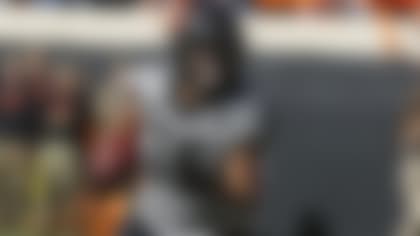The NFL continues to consider changes to its season structure -- from altering the preseason to expanding the postseason -- but Commissioner Roger Goodell said Thursday it is extremely unlikely those changes would be made in time for 2014. That means at least another year of the four preseason games that almost nobody -- including the league -- loves and a 12-team playoff field.
But Goodell, in an interview in his New York office, indicated the timing for altering the calendar of games is right. The league is locked into long-term labor and television contracts and recently settled the mammoth concussion litigation involving thousands of former players.
Goodell said there haven't been any recent conversations about the most controversial change to a season -- going to an 18-game regular-season slate. The idea is not dead, he said, but there haven't been any internal talks nor talks with the NFL Players Association, which would have to agree to the change.
But there is some urgency to decide whether to reduce the number of preseason games or somehow change the complexion of the games to create more competitiveness and fan interest. Any changes would have to be discussed at the league's annual meeting in March, and Goodell said there still is a lot of work to be done on the possibilities, making it unlikely significant alterations to the season could be decided upon by next spring.
A reduction to two preseason games is likely to be considered too drastic for coaches, who need time to evaluate young players and prepare those who will play in the regular season. But the league is considering myriad scenarios -- from replacing games with scrimmages, to dropping some games off season-ticket packages -- to improve the preseason.
Goodell also said he has not decided if expanding the playoffs beyond the current 12-team format is best for the league. Critics of the idea fear adding another layer of playoff games will dilute the importance of the regular season. But more playoff teams keeps interest in the season alive in more areas of the country and would provide another lucrative TV package of games.
"With the competitiveness of the league, you see teams get hot the second half of the season. A reasonable argument could be made that there are teams that should qualify for the playoffs and don't and could win the Super Bowl," Goodell said. "I don't think we want to expand just to have more teams. We want to create more excitement, more interest and give teams a chance to win the Super Bowl."
One change that could be made for next year: The NFL is considering playing a third game in London as part of its evolving International Series. Goodell said a final decision hasn't been made, nor is there a timeline for deciding if a franchise will be permanently placed in London.
Goodell addressed many other topics in the interview:
» He was adamant that the NFL will not let slide enforcement of rules designed to enhance player safety or programs that the league hopes will provide better knowledge now that the concussion litigation has been settled.
"The simple answer is no, we took on these initiatives to make the game safer and we're going to continue that, whether it's making sure the rules take those dangerous techniques out of the game or whether it's improvements in equipment or pioneering research," Goodell said. "If anything, we'll continue to accelerate as necessary."
Goodell said players' concerns that the emphasis on hits to the head and neck have resulted in low hits that are causing knee injuries -- like the one to Miami Dolphins tight end Dustin Keller in the preseason -- are not new. But he said that when the NFL Competition Committee reviews the consequences of rules changes, it has not seen low hits as an unintended consequence of a crackdown on high hits.
"We really don't want to see either," Goodell said. "There's a large target area to hit in, between the thighs and the shoulders and chest area. But it's a fast game. You're going to have times when someone is going to have it, that's why we have penalties, that's why we have a discipline process. It will happen. You try to limit that. Fortunately, it is limited."
Goodell said he believed the diagnosis of Terrelle Pryor's concussion was handled appropriately. An athletic trainer stationed in the press box spotted the hit to the head that the Oakland Raiders quarterback took Monday night against the Denver Broncos, then alerted doctors on the sideline. Pryor showed no symptoms immediately after the hit and briefly continued to play before he was tested for a concussion.
"You obviously want to have him evaluated as soon as possible," Goodell said. "But again, he showed no symptoms, he jumped right up. The reason we were able to detect it was we saw the impact of the hits. That means the system worked. Would I like to see it happen faster? Yes."
» Goodell said his comment in an interview two weeks ago -- in which he said, if the Washington Redskins name offends even one person, the NFL has to listen -- should not be interpreted as a shift in his position from a letter he sent to several members of Congress in June, in which he defended the name. In recent weeks, the Washington Post's editorial page called the name a racial slur that no longer should be tolerated, and several prominent writers and outlets said they no longer will use the name.
"I don't think that's softening," Goodell said of his recent comment. "I think the name is done in a way that they always presented it as a source of pride, honor and tradition. But I also have been very open, and I feel this way about any issues, we need to listen, particularly if people are offended."
On if he believes the Redskins should change their name, Goodell said: "I think they should listen to the people. Fans feel very strongly about the name. The last polling I have of Native Americans, nine out of 10 were not offended by the name. You have to look at listening to people who are offended by it and see if you can address those issues."
» Goodell considered the $765 million concussion lawsuit settlement a victory for the players and their families: "We now have a fund that is there for players and their families if they are having any issues. We also are going to baseline (test) those players. If they develop neurocognitive issues, there will be a fund there for them."
When asked if the settlement, in which the NFL did not have to admit any responsibility for how it treated concussions and its players, also was good for the league, Goodell said: "I don't think anyone ever wants to be involved in litigation. Litigation is time-consuming; it can be distracting because you've got to focus on it. I think getting that resolved is a good thing."
» Negotiations to begin HGH testing remain at a standstill, but there is more than one issue separating the sides. Goodell said he will not compromise on his authority to decide discipline in cases involving drug-related violations of the law, a power given to him in the collective bargaining agreement two years ago. But he said the league and players' union also have not agreed to the number of games a player would be suspended for a second violation under the performance-enhancing drug policy.
The league had wanted a 10-game suspension but agreed to come down to eight games as part of negotiations. But Goodell said the union never agreed to the league's terms for the eight-game suspension, so that issue remains outstanding.
» Without directly commenting on Broncos linebacker Von Miller's suspension or the circumstances of his violation, Goodell said the league and union, after meeting with the company responsible for collecting urine samples from players, were making changes to the protocol in hopes of assuring that tampering with samples could not happen. Goodell declined to provide specifics on what would be done, saying he did not want to provide a "road map" for those who might try to circumvent the security measures.
» Goodell said he did not have a problem with Aldon Smith playing Sunday, little more than 48 hours after San Francisco's star pass rusher was arrested for driving under the influence and hours before the 49ers announced he would leave the team for an undetermined period to seek in-patient rehabilitation for a drinking problem.
Follow Judy Battista on Twitter @judybattista.


